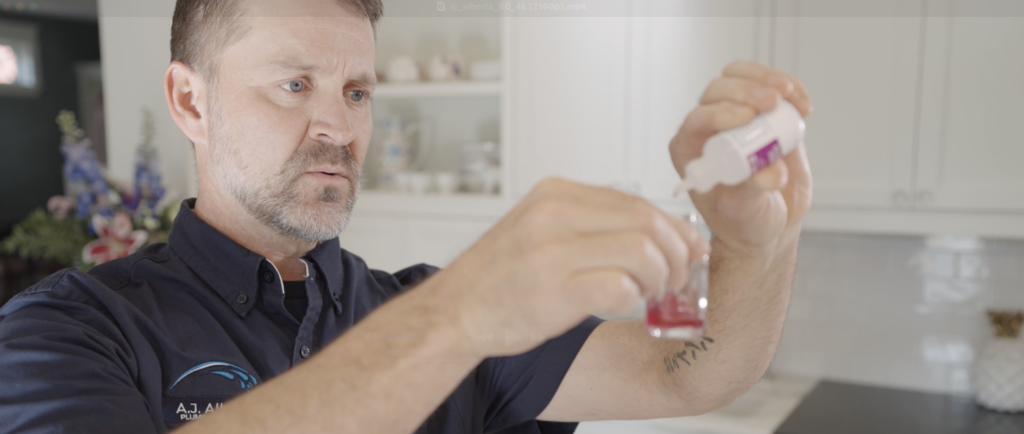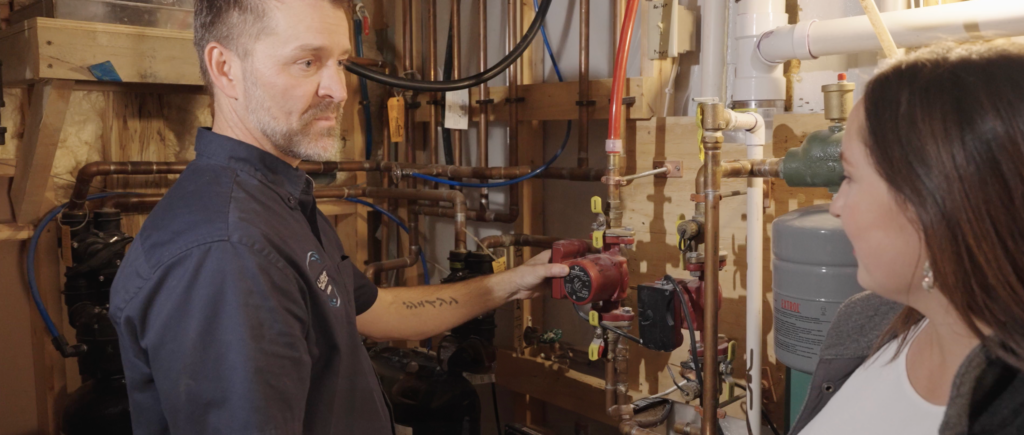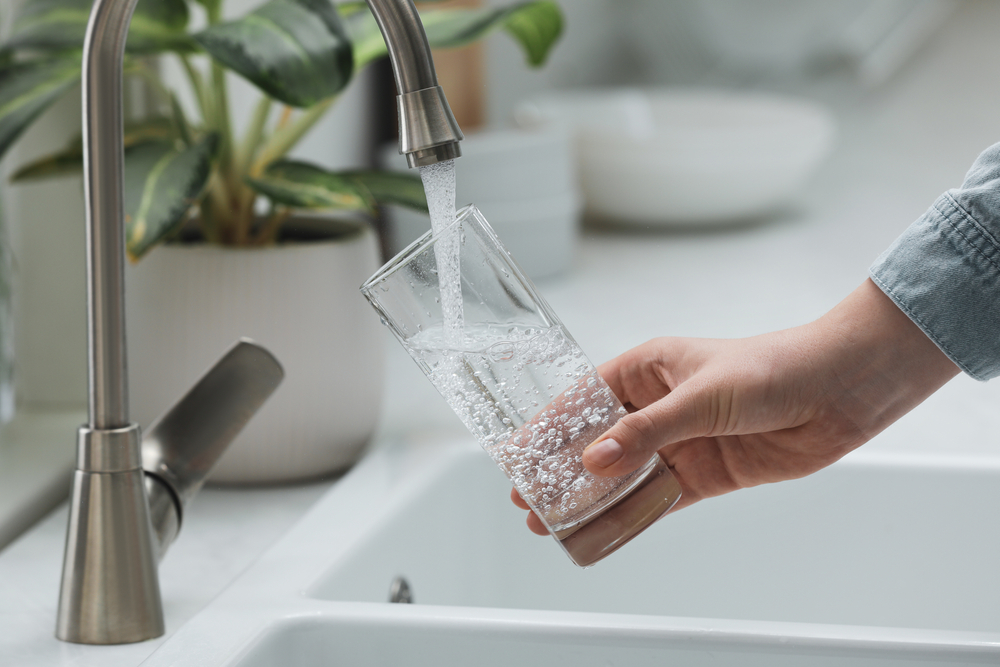Your water heater is a costly investment — one that lasts well over a decade. That’s why when the time comes to choose a replacement, you’ll need to consider things like:
- Cost 💵
- Efficiency ⏰
- Longevity 🧓
You’ll also have to choose between two types of water heaters: Tankless and tank storage.
If you’re new to the world of water heaters, making the right choice can be a challenge. In this article, we’ll cover the great homeowner’s debate of the tankless water heater vs tank storage heater, including their pros and cons.
Keep reading to learn more.
Tankless Water Heater Vs Tank Storage Heaters: What’s the Difference?
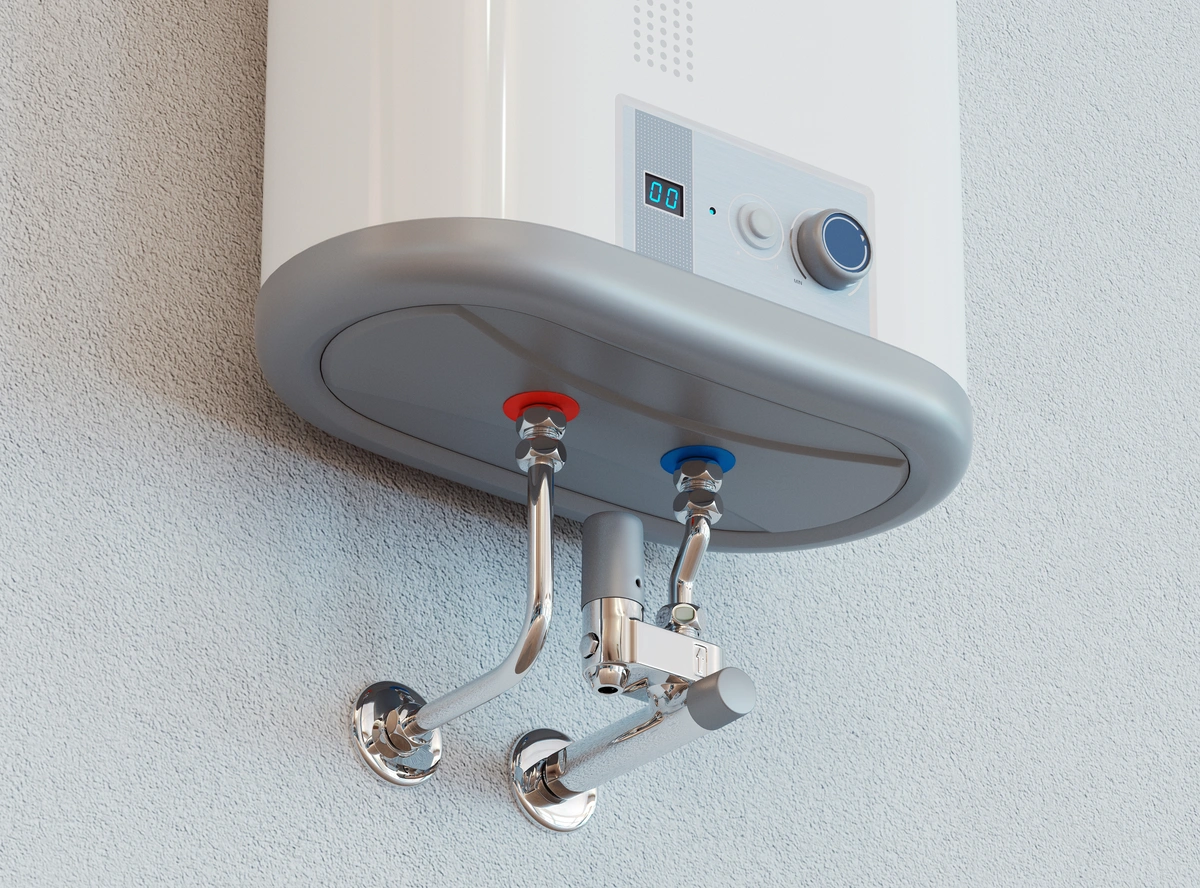
It may not seem that important, as both types of water heaters are designed to heat up your home’s water supply. However, both types of water heaters function differently and come with different advantages, which makes the entire difference when you have to choose which type is best for your home.
Let’s review the details:
Tank Storage Water Heaters
Most homes throughout the US have tankless storage water heaters. As their name suggests, these water heaters store hot water right in the tank.
Here’s what you need to know about tank storage water heaters:
- They typically hold between 30 and 50 gallons of water
- They have a pipe that emerges from the top to deliver hot whatever wherever it’s needed (kitchen sink, bathrooms, etc.)
- The average unit is about five feet in height and two feet in width
- They’re commonly installed in garages, laundry rooms, utility closets, and basements
How Tank Storage Water Heaters Work
Tank storage water heaters are typically powered by natural gas or propane; however, some are powered by electricity.
This is how the tanks work:
- Cold water enters the tank through an inlet at the bottom
- The water is then heated by pipes referred to as the heat exchanger unit
- Once the expected temperature is reached, it’s stored in the tank until needed
- The outlet pipe at the top of the tank sends hot water to every faucet and shower in the home when turned on
Tank storage heaters are also insulated, which is what helps them to maintain the water temperature. Lastly, this entire process is continuous, which means there will always be a hot water supply in your home.
✅The Pros of Tank Water Heaters
The benefits of tank water heaters include:
- Lower upfront costs: The average unit costs around $250, and they’re easier to install as they don’t require any plumbing or electrical upgrades.
- Lower repair costs: Not only are tank storage units cheaper to install, but they also don’t require as many repairs over the years.
- High reliability: Because these tanks store a large volume of water, they can still provide hot water for several days in the event of a power outage.
- Replacement parts are easy to come by: Tank storage water heaters are super common, which means their replacement parts are in full supply, making them easy to get a hold of.
❌The Cons of Tank Water Heaters:
The downsides of having a tank storage water heater include:
- Higher utility bills: Since these units run continuously to fill and heat the water in the tank, they’ll make up for a large portion of your energy bill.
- They’re inherently risky: These units don’t last forever, and 50 gallons of water gets heavy. If there’s a leak, it can cause significant water damage to your home. They can also easily burn anyone that touches them.
- Shorter lifespan: The average tank storage unit’s lifespan only ranges from 10 to 15 years.
- They require a lot of space: These units are large and bulky. Plus, they’re hot. Therefore, you need to ensure you have enough space to store it and allow heat to dissipate on the outside.
Tankless Water Heaters
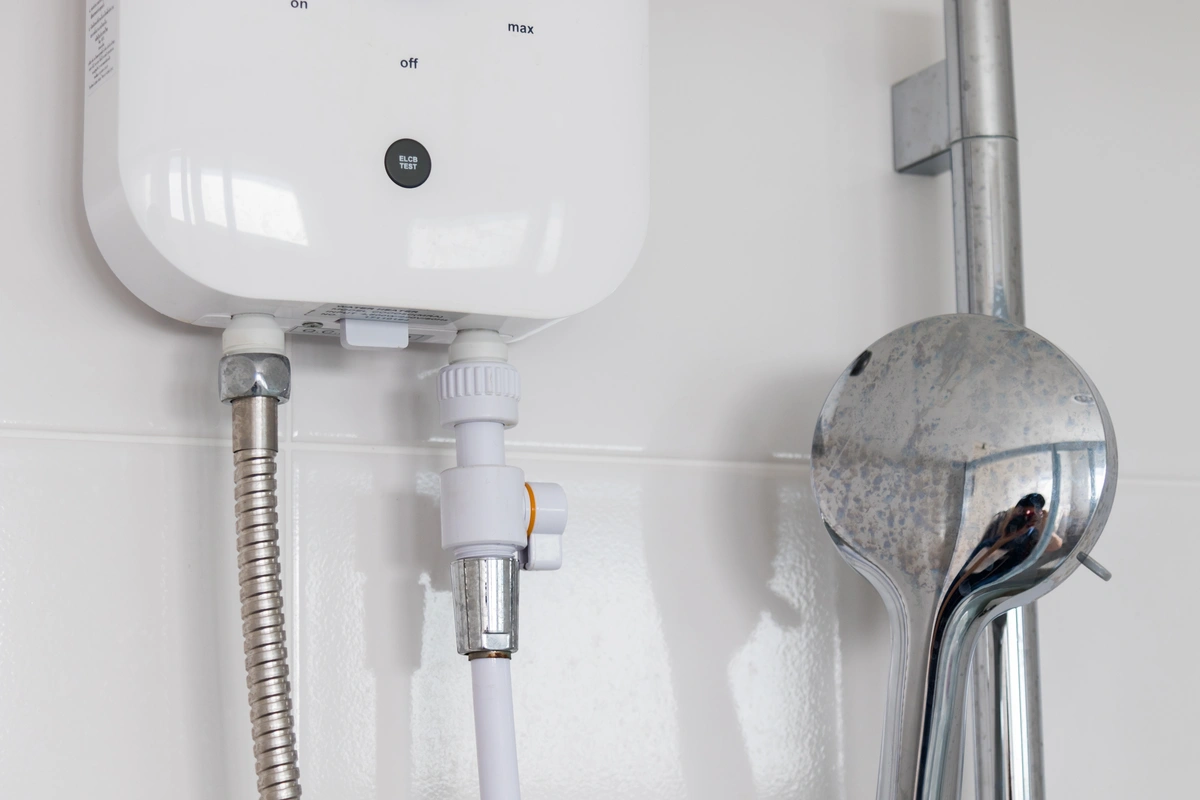
Tankless water heaters are the result of technological advancement. They’re designed to heat water on demand rather than store it and maintain specific temperatures. Therefore, they only use energy to heat water when the faucet is turned on.
Because of this, tankless water heaters are considered more energy efficient, which is why the global demand for tankless units has grown at a steady rate of six percent each year since 2018.
How Tankless Water Heaters Work
Tankless water heaters run on gas or electricity; however, they don’t store water.
Here’s how they work:
- Water passes through the tankless water heater’s heat exchanger unit
- The water is heated to a specific temperature
- The hot water is then delivered to the fixture that has been turned on
It should be noted that gas-powered tankless water heaters tend to heat water quicker than electric units, which is important if you need to run multiple appliances at once.
✅The Pros of Tankless Water Heaters:
The benefits of going tankless include:
- Space-saving: Tankless water heaters are small, which means they can be installed in small spaces.
- Energy saving: Since these units only heat water as needed, they can save you up to 70% on your energy bills.
- Longer lasting: Tankless units require little maintenance and typically last between 20 and 30 years.
- Instant heat: Tankless units heat your water on demand, so you’ll never have to let the faucet run longer than needed.
- Potential rebates: Many states and utility companies offer rebates for purchasing appliances that are energy efficient, which means more savings for you.
❌The Cons of Tankless Water Heaters:
The drawbacks to these units include:
- High upfront cost: Tankless heaters cost significantly more than their tank storage counterparts. You’ll also need to consider the cost of upgrading your home’s electrical and plumbing systems.
- Limited flow rate: Tankless units tend to have a limited flow rate when it comes to running multiple appliances at once. This means they may not be suitable for large families.
- Spare parts are hard to find: Since tankless units are still relatively new and less common, spare parts can be a bit harder to come by.
Which Type of Water Heater Is Right for Your Home?
Determining whether you should stick with a traditional tank storage unit or make the switch to a tankless water heater all comes down to your household needs.
If you’re unsure, it’s best to consult with the plumbing professionals at AJ Alberts Plumbing. Give us a call today to learn more about water heaters or to schedule a service!


